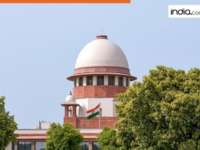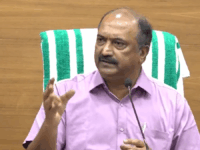The Supreme Court of India on Saturday stepped in to partially block the implementation of the controversial Waqf (Amendment) Act 2025, halting certain provisions that it said risked arbitrariness and undermined the principle of separation of powers.
A bench led by Chief Justice BR Gavai and Justice AG Masih issued an interim order, making it clear that while the Court would not stay the entire law, some provisions could not be allowed to operate without proper checks in place.
What the Court Put on Hold
One of the more contentious sections, which required a person to have practiced Islam for at least five years before being eligible to create a waqf, has been stayed for now. The Court observed that while the intent behind the clause may be valid (to avoid fraudulent waqfs by recent converts), no mechanism exists for state governments to verify a person’s religious practice history. Until such rules are framed, the requirement has been paused.
Another key provision blocked involves how disputes over Waqf land are handled. Under the amended law, a government officer (Collector) was given the authority to determine whether a Waqf property had been encroached upon or belonged to the state, and could even order corrections to land records. The Court called this an unconstitutional overreach by the Executive, stating that only judicial or quasi-judicial bodies can rule on such matters.
Until a tribunal or court makes a final ruling on ownership, the Waqf properties in question cannot be derecognized or reassigned. No third-party claims on such land can be created in the meantime.
What the Court Allowed to Stand (for Now)
Not everything was frozen. The bench refused to stay the entire Act or other provisions under challenge, including:
- The clause allowing non-Muslims to serve as CEOs of State Waqf Boards, although the Court urged governments to prefer Muslims for the role wherever possible
- A cap on non-Muslim representation in Waqf Boards, no more than 4 in the Central Waqf Council and 3 in State Boards
- The requirement for registration of Waqfs, which the Court noted has been part of earlier versions of the law
The Bigger Picture
The 2025 amendment to the Waqf Act introduced sweeping changes that have stirred strong reactions across the political and religious spectrum. Critics, including opposition MPs, religious organizations, and civil rights groups, argue that several provisions undermine minority rights and strip Waqf institutions of autonomy.
Petitioners in the case include prominent figures such as AIMIM MP Asaduddin Owaisi, AAP’s Amanatullah Khan, Jamiat Ulema-i-Hind, All India Muslim Personal Law Board, and parties like the DMK, SP, and CPI.
On the other side, BJP-led states like Assam, Haryana, Rajasthan, Chhattisgarh, and Uttarakhand have filed interventions in support of the new law, claiming it brings clarity and transparency to Waqf land management. Kerala, notably not BJP-ruled, has also supported the amendment.
Among the hot-button issues being challenged:
- Elimination of waqf-by-user provisions
- Restriction of Waqfs over Scheduled Areas and protected monuments
- Bar on non-Muslims creating Waqfs
- Application of the Limitation Act to Waqf property disputes
- Reduced representation of women on Boards
- Renaming of the law to Unified Waqf Management, Empowerment, Efficiency and Development Act
What Happens Next?
The Court emphasized that this is an interim order and not a final ruling on the law’s constitutionality. The petitions will continue to be heard in detail in the coming months.
CJI Gavai noted, “Only in the rarest of rare cases should a law passed by Parliament be stayed. While we have not stayed the statute as a whole, some provisions cannot be allowed to operate without clarity, safeguards, and respect for constitutional norms.”
The next few months will be critical, not just for the Waqf institutions, but also for how India balances governance, religious autonomy, and property rights in an increasingly complex legal landscape.


















